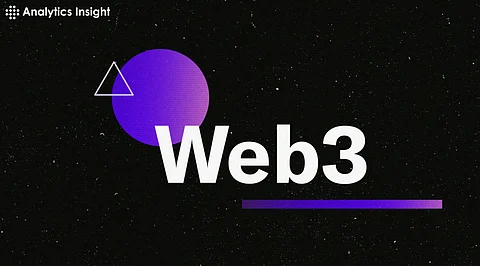

Web3 hosting solutions are fundamental in supporting the growth and running of decentralized applications and blockchain technologies. They provide the infrastructure that ensures security, scalability, and integration into blockchain protocols for decentralized platforms.
Let’s learn how Web3 hosting solutions work and what features make them essential to the decentralized ecosystem.
Decentralized Infrastructure: Web3 hosting uses blockchain protocols and smart contracts to allow dApps to operate without relying on traditional, centralized servers. This infrastructure is very important for blockchain projects to maintain security and independence.
Improved Security: Web3 hosting solutions use advanced encryption algorithms during data transmission and storage. The majority of Web3 hosting services offer DDoS protection. Hosting solutions are also designed to run securely within protected data centers, which prevents physical and cyber hacks while maintaining a high level of uptime.
Scalability: Web3 hosting services allow users to add nodes and resources as needed to ensure high performance even as demand grows. This scalability is important for dApps, which must handle a high volume of transactions and data requests while ensuring fast user response times.
Decentralized Data Storage: Decentralized data storage is one of the fundamental characteristics of Web3 hosting solutions. Most services utilize the InterPlanetary File System to store data in a distributed way. This means dApp data will not be stored on a single central server but spread over a decentralized network of nodes. This increases the application's security and resilience by protecting it from data breaches and server outages.
Community Integration: Web3 hosting allows for interoperability between other applications within the much larger Web3 ecosystem. Its connection with developers, projects, and communities empowers them to interact within a collaborative platform that would be beneficial for their apps. In this respect, many hosting providers interface with decentralized finance, DAOs, and various other initiatives.
Performance Optimization: For Web3 applications to be successful, they need to be optimized for high transaction volumes, smart contract executions, and data. Web3 hosting services ensure the infrastructure is tuned for high performance and provide reliable services under heavy load.
Compliance Support: As the decentralized ecosystem continues to expand, governments are increasingly interested in regulations surrounding blockchain technologies and their respective decentralized applications. Web3 hosting services can ensure compliance with evolving regulatory frameworks, ensuring that developers create applications that operate according to legal standards.
Some Web3 hosting services have taken the lead in decentralized infrastructure for dApps.
IPFS (InterPlanetary File System): IPFS is a protocol for peer-to-peer data storage. Content addressing, version control, and resilience against censorship make it an excellent solution for distributed hosting of dApp assets.
Fleek: Fleek provides decentralized hosting with a focus on user experience. It offers free hosting options and up to the most comprehensive packages explicitly tailored for Web3 applications.
Dedicated Node Hosting Providers: Companies such as Servers.com offer dedicated bare metal and cloud node hosting specifically for different blockchain protocols. The services offered come with 24/7 support, thus maintaining blockchain applications' high uptime and performance.
There are two main models for Web3 hosting solutions:
Fully Decentralized Hosting: In this model, decentralized platforms host all components of a decentralized application for utmost security and censorship resistance. Although such deployment provides greater security, it increases the complexity of deployment and management.
Hybrid Hosting: Hybrid hosting combines decentralized smart contracts with centralized front-end hosting, making it easier to deploy dApps. Although hybrid hosting is simple, it introduces vulnerabilities because of its reliance on centralized systems.
As Web3 technologies evolve further, the requirement for hosting services is likely to be more crucial. It will allow developers to create more efficient and robust decentralized applications, further enhancing the growth and sustainment of the Web3 ecosystem.
